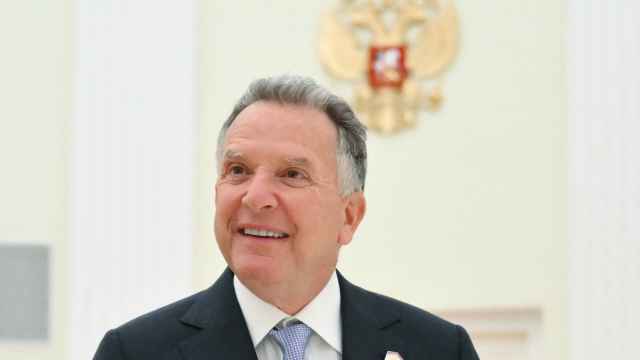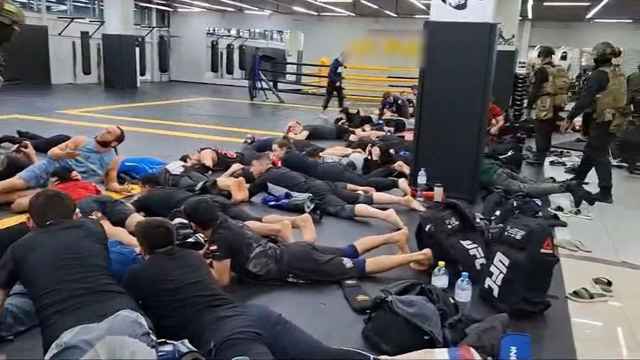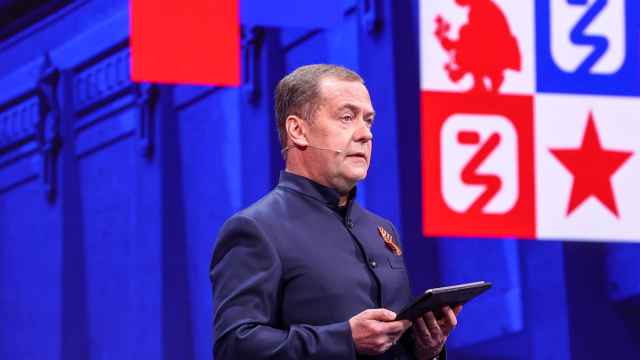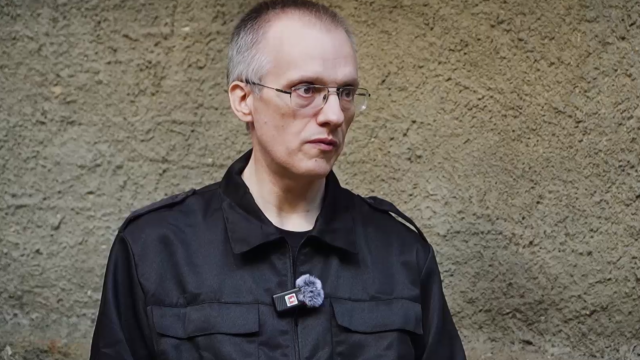One particularly picturesque hill in central Sochi is being transformed into the new Svetlana district, an area being built up with prestigious apartment buildings that offer a spectacular view of the sea.
But most of the buildings still remain uninhabited, while those who live there are woken up by the sounds of drills every morning.
A local pensioner, Sergei Ivanovich, said he had lived in this part of Sochi his whole life — and things have changed drastically.
"I remember when this hill was blooming with a paradise of gardens, where huge oranges and sweet-smelling mandarins grew," he said.
I met Sergei Ivanovich, who gave only his first name and patronymic but declined to say his last name, when I was going home one dark Sochi evening and got lost. He said he would help me find my way and, despite his old age, he climbed up the hill with buoyant steps. For the rest of our journey, he regaled me with incredible — and maybe tall — tales.
He cast a glance at the road that had been blocked for President Vladimir Putin's arrival in town, Kurortny Prospekt, forcing both traffic and pedestrians to wait for the Russian leader's cortege to pass.
"We have seen everyone here: Stalin, Brezhnev, Andropov, Yeltsin, everyone spent their vacation in Sochi," Sergei Ivanovich said, adding that security for the Soviet leaders was not as strict as it later became for Russia's leaders.
When former Russian President Boris Yeltsin came to Sochi, he said, there were six lines of security along the street, and armed officers sat in the bushes.
"All pedestrians were prohibited from walking along the street, and when an old woman continued to walk down the street anyway, an officer ran out and told her that he would use his gun if she did not stop. I remember, I looked at her hands, which she was using to hold on to her cane, and they were white because she was clutching the cane so tightly in fear of making a single move," Sergei Ivanovich said.
He pointed to another side of the road and said that was where Brezhnev's dacha used to be.
"My father-in-law worked there and played volleyball with Brezhnev," he said.
Sergei Ivanovich said his family had a long history of interacting with Soviet leaders when they came to Sochi. His uncle was a driver for Stalin when the leader traveled to his famous Sochi dacha, while when Sergei Ivanovich himself was a child, he met Alexei Kosygin, head of the Council of Ministers in the Soviet Union. Kosygin gave him an orange, he said.
Sergei Ivanovich, a botanist by profession, used to work at the Research Institute for Flower Cultivation and Subtropical Cultures, which is also located on the hill in the Svetlana district.
For him, the most worrying aspect of the Olympic Games is not security or corruption, as it is for many of the Games' biggest critics. For him, the worst part of the Olympic construction is the changes he said it wreaked havoc on the natural landscape.
"What concerns me most about the Olympics is that all the facilities have been built in an area where very rare plants and flowers used to grow," he said. Hundreds of birds used to come to this area for the winter, he said, and most of them were on the rare species list.
"It was a good time, but now it is gone," he said.
A Message from The Moscow Times:
Dear readers,
We are facing unprecedented challenges. Russia's Prosecutor General's Office has designated The Moscow Times as an "undesirable" organization, criminalizing our work and putting our staff at risk of prosecution. This follows our earlier unjust labeling as a "foreign agent."
These actions are direct attempts to silence independent journalism in Russia. The authorities claim our work "discredits the decisions of the Russian leadership." We see things differently: we strive to provide accurate, unbiased reporting on Russia.
We, the journalists of The Moscow Times, refuse to be silenced. But to continue our work, we need your help.
Your support, no matter how small, makes a world of difference. If you can, please support us monthly starting from just $2. It's quick to set up, and every contribution makes a significant impact.
By supporting The Moscow Times, you're defending open, independent journalism in the face of repression. Thank you for standing with us.
Remind me later.





